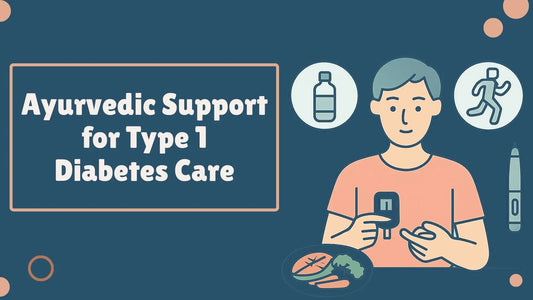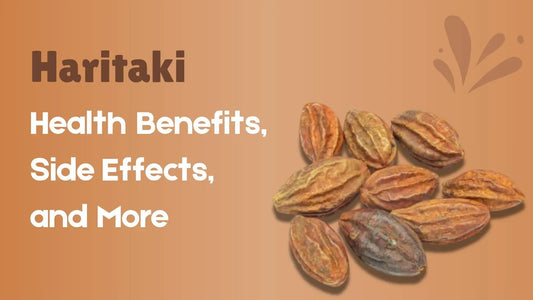
Alcohol Withdrawal: Symptoms, Treatment & Timeline
Thinking of quitting alcohol? Then it’s important for you to be careful of the withdrawal symptoms. During Alcohol withdrawal, a person experiences several negative changes in the body. If not coped well, it can hamper your overall well-being. Not every individual gets these withdrawals after quitting addiction.
The severity and duration vary for each person depending on their condition. However, it can be coped with the right care and treatment. In this blog, we will talk about the same, what is alcohol withdrawal, its symptoms, treatments and timeline.
What is Alcohol Withdrawal?
When a person who is addicted to alcohol or Alcohol Use disorder suddenly stops their usage, they start experiencing certain withdrawals, known as Alcohol Withdrawal. Alcohol withdrawal symptoms, if unmanaged, can lead to several health complications, which can have future consequences.
The withdrawal symptoms vary for different individuals, especially if you have certain other medical problems.
A severe form of alcohol withdrawal, which is a dangerous form of alcohol withdrawal, is found to occur in about one out of every 20 people who have withdrawal symptoms.
This condition is called delirium tremens. It is marked by increased heart rate or blood pressure, creating a risk of heart attack, stroke, or death. Symptoms for some improve within five days, while for some it lasts for weeks.
Symptoms of Alcohol Withdrawal
People with alcohol addiction may experience some symptoms when they stop using the addictive substance all of a sudden. Here are some of the common symptoms experienced by them-
Physical Symptoms of Alcohol Withdrawal
-
Headache
-
Gastrointestinal discomfort
-
Insomnia
-
Fever
-
Tachycardia (Faster Heart Rate)
-
Diaphoresis (Excessive sweating)
-
Tremor
-
Sweating or hot flashes
-
Dehydration
-
Heart palpitations.
-
Increased blood pressure or heart rate
-
Hyperthermia (i.e., overheated body).
-
Rapid abnormal breathing
-
Alcohol withdrawal delirium
-
Gastrointestinal bleeding
-
Cardiomyopathy (disorder of the heart muscle)
-
Pancreatitis ( inflammation of the pancreas)
-
Electrolyte disbalance
-
Deficiency of the vitamin folate
-
Deficiency of the vitamin thiamine
-
Malnutrition
-
Vitamin deficiencies
Mental Symptoms of Alcohol Withdrawal
-
Mild anxiety
-
Hallucinations
-
Seizures (abnormal electrical activity in the brain)
-
Vivid Dreams
-
Nervous system changes
Treatments for Alcohol Withdrawal
In the treatment of Madatyaya (Alcohol Withdrawal), the therapeutic approach begins with addressing one’s dosha, the site of Kapha, followed by Pitta and then Vata. However, in cases where the patient is unsuitable for Vamana (therapeutic vomiting), alternative treatments and medications are employed.
These treatments are recommended through analysis of a case of a 32-year-old male patient who was presented with symptoms of insomnia, anxiety, nausea, restlessness, depression, headache and discomfort persisting for 15 days.
This person developed a chronic dependency on alcohol over 8 years, and stopped its alcohol 2 months ago. He started experiencing alcohol withdrawal symptoms. Here are the Ayurvedic treatments he opted for.
1. Ayurvedic Herbs that help with Alcohol Withdrawal Symptoms
a). Ashwagandha
It is used in traditional Ayurvedic medicine and has been used by some to overcome alcohol withdrawal or cravings.
Many claim that ashwagandha has anxiolytic effects that help prevent alcohol cravings. It supports brain and nervous system health, helping the body cope with emotional imbalances caused by alcohol detox.
b). Vidarikand
Vidarikand acts as an “aversion” agent, which helps clear acetaldehyde (a toxic metabolic byproduct of alcohol), which helps decrease alcohol cravings. This is similar to how the approved drug Antabuse (disulfiram) works in the body.
c). Kharjuradi Manth
A traditional Ayurvedic herbal decoction (often sweet), primarily made from dates (kharjura) and other cooling herbs.
It helps to relieve excess heat, dehydration, fatigue, and digestive discomfort, commonly experienced during Alcohol Withdrawal.
2. Ayurvedic Therapies that manage Alcohol Withdrawal Symptoms
a). Shirodhara with Brahmi Hima
This therapy involves continuously pouring Brahmi oil over the forehead. Shirodhara helps reduce insomnia, depression, disorders caused by Vata and Pitta imbalances, weakness of the immune system, and memory loss.
Benefits
-
Promotes deep relaxation and calms the nervous system.
-
Reduces irritability, anxiety, tremors, and restlessness in alcohol withdrawal.
-
Brahmi is a nootropic herb that supports brain function and mental clarity.
b). Nasya with Jatamansi Tail (nasal drops of Jatamansi oil):
This therapy involves administering medicated oil through the nose.
Here is how it helps with Alcohol withdrawal symptoms
-
Balances the nervous system and hormones.
-
Jatamansi is a calming herb that reduces mental stress and promotes sleep.
-
Clears toxins from the head region, aiding in mental clarity and emotional balance during withdrawal.
c). Shamana Therapy
Alcohol withdrawal causes vata and pitta aggravation, such as restlessness, anger, and tremors. Here, medhaya rasayana herbs such as Ashwagandha, Brahmi are used for the calming effects.
Shamanic herbs and oils in these cases help to
-
Calm vata, which further reduces anxiety, insomnia, and body pain
-
Pacify pitta, which reduces anger, heat, acidity, and headaches
3. Try Counselling to Manage Withdrawal Symptoms
People with Alcohol Withdrawal symptoms go through various psychological changes along with physical changes. Through counselling, one can transform their psychological state, which supports recovery. Counselling often focuses on reducing or stopping substance use.
In one of the Patient counselling was done by showing the side effects of drug intake in the form of videos/images through the laptop. During the treatment and follow-ups, the patient was
asked to stop alcohol usage, and was advised to avoid spicy, oily, salty food and advised to take milk, peya, and khichdi as a pathya in food. This provided symptomatic relief to the patient.
At Sat Kartar, you can consult our Ayurvedic doctor free of cost in case you have any concerns related to alcohol withdrawal.
4. Ayurvedic Medicine for De-Addiction
Sat Kartar has developed Ayurvedic medicines that works towards coping with alcoholism without experiencing any withdrawal symptoms. This formulation is made of various rasayanas that have been known since ancient times for providing relief from addiction. Here is how it can be effective for you or anyone who is struggling with addiction
-
It helps you control cravings for addictive substances
-
It is effective against all kinds of addiction, such as Alcohol, Smoking, and Nicotine
-
It can be secretly given to a drug addict
-
It is a safer solution that doesn’t leave any side effects
Alcohol Withdrawal Timeline
Alcohol Withdrawal Timeline is not the same for all; it depends on factors like age, gender, genetics, overall health and alcohol use history.0
Stage 1:
Within six to 12 hours, you can experience mild symptoms such as
-
Headache
-
Mild anxiety
-
Insomnia
After 12 hours, these symptoms can become more severe, with symptoms such as
-
Anxiety
-
Shaky hands
-
Headache
-
Nausea
-
Vomiting
-
Insomnia
-
Sweating
Stage 2:
About 12-48 hours- Addicts start experiencing more serious symptoms such as hallucinations (seeing things that aren't there)
Stage 3:
In the following 48 to 72 hours, withdrawal symptoms can include fever, sweating, confusion, quick heart rate, high blood pressure, and delirium tremens, a potentially fatal condition. However, studies found that only about 1%-1.5% of people with alcohol withdrawal have DTs.
Stage 4:
Withdrawal symptoms will start to improve after 72 hours and gradually dissipate over the next four to seven days.
Conclusion
Alcohol withdrawal management depends more on self-precautions and care. With proper implementation of the Ayurvedic treatments along with the right lifestyle modification, you can experience positive changes and recovery gradually.
In case the symptoms are severe, don’t resist seeking medical attention. Apart from it, get support from your family and friends, as more than medications, your positive mindset and attitude can accelerate your recovery.
FAQs
How long do withdrawals last from alcohol?
It depends on your condition. Symptoms generally start showing within 6 to 12 hours of use. How long it lasts depends on various conditions such as the degree of alcohol intake, the length of time the individual has been using alcohol, and the previous history of alcohol withdrawal.
When do alcohol withdrawals start?
Alcohol withdrawal symptoms start showing within six to 12 hours after the ingestion of the last drink. It can be identified by symptoms such as shaking, headache, sweating, anxiety, nausea, or vomiting.
When is alcohol withdrawal the worst?
Alcohol withdrawal is worst experienced during the first 3 days, i.e within 24 to 72 hours. This is the peak or worst phase of withdrawal. It is typically marked by symptoms such as Tremors, restlessness, High blood pressure, Severe anxiety or panic, Hallucinations, and Risk of delirium tremens, a life-threatening condition in severe cases.
References
- American Addiction Centers. Alcohol Withdrawal and Detox [Internet]. Brentwood (TN): American Addiction Centers; c2024 [cited 2025 Jun 23]. Available from: https://americanaddictioncenters.org/alcohol/withdrawal-detox
- MedlinePlus. Alcohol withdrawal [Internet]. Bethesda (MD): National Library of Medicine; c2024 [updated 2024 Mar 5; cited 2025 Jun 23]. Available from: https://medlineplus.gov/ency/article/000764.htm
- Harvard Health Publishing. Alcohol withdrawal: A to Z [Internet]. Boston (MA): Harvard Medical School; c2024 [cited 2025 Jun 23]. Available from: https://www.health.harvard.edu/diseases-and-conditions/alcohol-withdrawal-a-to-z
- Choudhary AK, Patel B, Pancholi A, Sharma H. A review article on alcohol withdrawal syndrome. Int J Ayurveda Med [Internet]. 2021 Dec 31 [cited 2025 Jun 23];12(4):701–5. Available from: https://www.ijam.co.in/index.php/ijam/article/view/4957

Dr. Hindika Bhagat
Dr. Hindika is a well-known Ayurvedacharya who has been serving people for more than 7 years. She is a General physician with a BAMS degree, who focuses on controlling addiction, managing stress and immunity issues, lung and liver problems. She works on promoting herbal medicine along with healthy diet and lifestyle modification.



